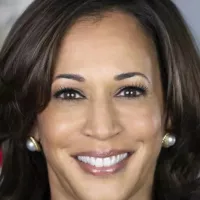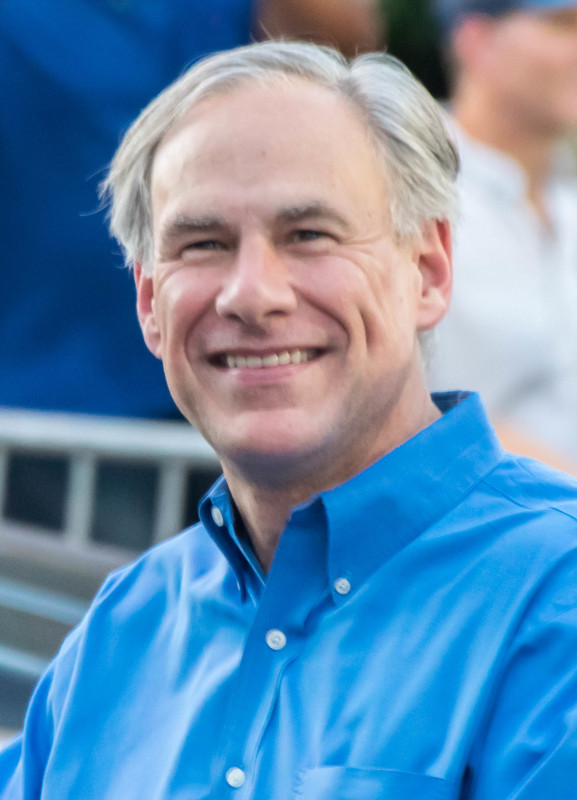Discover the career path of Greg Abbott, from the first major opportunity to industry-changing achievements.
Greg Abbott is the 48th and current governor of Texas, serving since 2015. A Republican, he previously served as the state's Attorney General from 2002 to 2015 and as a Justice on the Texas Supreme Court from 1996 to 2001. He is currently the longest-serving incumbent governor in the United States.
1984: Juris Doctor Degree
In 1984, Greg Abbott earned his Juris Doctor degree from the Vanderbilt University Law School, marking a significant milestone in his education and career path.
1984: Private Practice at Butler and Binion, LLP
In 1984, Greg Abbott started working for Butler and Binion, LLP, marking the beginning of his private practice career.
1992: End of Tenure at Butler and Binion, LLP
In 1992, Greg Abbott's tenure at Butler and Binion, LLP came to an end, marking a transition in his private practice career.
1995: Appointment to Texas Supreme Court
In 1995, Greg Abbott was appointed as a Justice of the Texas Supreme Court by then-governor George W. Bush, marking a significant advancement in his judicial career.
1996: Elected to Texas Supreme Court
In 1996, Greg Abbott was elected to the Texas Supreme Court for a two-year term. He faced a challenge from Libertarian John B. Hawley of Dallas and won with 84% of the vote.
1998: Re-elected to Texas Supreme Court
In 1998, Greg Abbott was re-elected to the Texas Supreme Court for a six-year term, defeating Democrat David Van Os with 60% of the vote.
2001: Resignation and Campaign Shift
In 2001, Greg Abbott resigned from the Texas Supreme Court to run for lieutenant governor of Texas. After John Cornyn vacated the attorney general's post, Abbott switched his campaign to run for attorney general in 2002.
2001: Returns to Private Practice
In 2001, after resigning from the Supreme Court, Abbott returned to private practice and worked for Bracewell & Giuliani LLC. He also became an adjunct professor at University of Texas School of Law.
December 2, 2002: Sworn in as Attorney General
On December 2, 2002, Greg Abbott was sworn in as the Attorney General of Texas, following John Cornyn's election to the U.S. Senate.
2002: Election as Attorney General
In 2002, Greg Abbott was elected as the third Republican to serve as Attorney General of Texas since the Reconstruction era, receiving 57% of the vote.
2003: Support for Medical Malpractice Damage Caps
In 2003, Greg Abbott supported the Texas Legislature's move to cap non-economic damages for medical malpractice cases at $250,000, without adjustments for rising cost of living.
March 2005: Argument before the Supreme Court
In March 2005, Greg Abbott delivered oral argument before the United States Supreme Court on behalf of Texas, defending a Ten Commandments monument on grounds of the Texas State Capitol in Van Orden v. Perry. He argued that "The Ten Commandments are a historically recognized system of law."
2005: Advocacy for Ten Commandments Display
In 2005, as Attorney General, Greg Abbott successfully advocated for the Texas State Capitol to display the Ten Commandments in the U.S. Supreme Court case Van Orden v. Perry.
November 7, 2006: Re-election to Attorney General
On November 7, 2006, Greg Abbott was re-elected to a second term as Attorney General, defeating civil rights attorney David Van Os with 60% of the vote.
2006: Re-election as Attorney General
In 2006, Greg Abbott was re-elected as Attorney General of Texas, receiving 60% of the vote.
2010: Elected to Third Term as Attorney General
In 2010, Greg Abbott was elected to a third term as Attorney General, defeating the Democratic nominee, attorney Barbara Ann Radnofsky, with 64% of the vote.
2010: Re-election as Attorney General
In 2010, Greg Abbott was re-elected as Attorney General of Texas for a third term, receiving 64% of the vote and becoming the longest-serving attorney general in state history.
2011: Fundraising Success
In the first six months of 2011, Greg Abbott raised more money for his campaign than any other previous Texas politician, reaching $1.6 million.
July 2013: Announcement of Candidacy for Governor
In July 2013, Greg Abbott announced his candidacy for governor of Texas in the 2014 election, shortly after Governor Rick Perry announced he would not seek a fourth full term.
March 4, 2014: Republican Primary Win
On March 4, 2014, Greg Abbott won the Republican primary with 91.5% of the vote, paving the way for him to face State Senator Wendy Davis in the general election.
2014: Election as Texas Governor
Elected in 2014, Abbott became the first Texas governor and third governor of a U.S. state to use a wheelchair.
2014: Gubernatorial Candidacy
In July 2013, Greg Abbott had announced his candidacy for the 2014 gubernatorial election.
January 20, 2015: Abbott Sworn in as Governor of Texas
On January 20, 2015, Greg Abbott was sworn in as the governor of Texas, succeeding Rick Perry. Abbott is the first governor of Texas and the third elected governor of a U.S. state to use a wheelchair.
March 15, 2015: Abbott Meets with Irish Taoiseach
On March 15, 2015, Governor Abbott held his first meeting with a foreign prime minister, meeting with the Irish Taoiseach Enda Kenny to discuss trade and economic relations.
June 2015: Bill to bolster Texas border security
In June 2015, Greg Abbott signed a bill aimed at strengthening Texas's border security. This included hiring more state police officers, increasing the use of technology, and establishing intelligence operations units.
January 8, 2016: Abbott Calls for National Constitutional Convention
On January 8, 2016, Greg Abbott called for a national constitutional convention to address what he saw as abuses by justices of the United States Supreme Court.
May 17, 2016: Abbott Elaborates on Constitutional Convention Proposal
On May 17, 2016, Greg Abbott elaborated on his proposal for a national constitutional convention in a public seminar at the Hoover Institute.
December 2016: Campaign Funds
As of December of 2016, Greg Abbott had $34.4 million on hand for his campaign, of which he had raised $9 million during the second half of 2016.
2016: Abbott Calls for Convention of States
In 2016, Governor Abbott spoke to the Texas Public Policy Foundation, advocating for a Convention of States to amend the U.S. Constitution and proposing the Texas Plan to limit federal power and expand states' rights.
2016: Abbott Publishes Book
In 2016, Greg Abbott published his book titled "Broken But Unbowed," which recounts his personal story and views on politics.
January 2017: Fundraising for Reelection
In January 2017, it was reported that Greg Abbott was raising funds for a 2018 reelection bid as governor, having $34.4 million on hand as of December 2016.
January 21, 2017: Intention to Run for Reelection
During the weekend of January 21, 2017, Greg Abbott stated his intention to run for reelection as governor.
March 28, 2017: Confirmation of Reelection Bid
On March 28, 2017, Greg Abbott formally confirmed his intention to run for reelection as governor.
May 2017: Signing of Texas Senate Bill 4
In May 2017, Greg Abbott signed Texas Senate Bill 4 into law, targeting sanctuary cities. The bill imposed charges on county or city officials who declined to cooperate with federal officials and allowed police officers to inquire about the immigration status of individuals they detained.
June 6, 2017: Abbott Calls for Special Legislative Session
On June 6, 2017, Governor Abbott called for a special legislative session in order to pass several of his legislative priorities. This agenda was supported by Lieutenant Governor Dan Patrick.
July 14, 2017: Abbott Announces Reelection Campaign
On July 14, 2017, Greg Abbott formally announced his reelection campaign for governor of Texas.
2017: Abbott Signs Bill Lowering Handgun Carry License Fees
In 2017, Greg Abbott signed into law a bill lowering handgun carry license fees.
2018: Reelection Bid
In January 2017, Abbott was raising funds for a 2018 reelection bid as governor
February 2021: Response to Texas Power Crisis
In February 2021, following a severe winter storm that caused a power crisis in Texas, Governor Abbott called for reforms to the Electric Reliability Council of Texas (ERCOT) and signed a bill requiring power plant weatherization.
September 2021: Legislation for border security operations
In September 2021, Greg Abbott signed legislation allocating nearly $2 billion towards Texas's border security operations, with $750 million designated for border wall construction. This was in addition to the $1 billion already appropriated for border security in the two-year state budget.
2021: Abbott and Patrick Lead Conservative Shift
After the regular 2021 session, Greg Abbott and Dan Patrick were described as the driving force behind a significant shift towards the right in recent state history.
2021: Trump Endorses Abbott for Reelection
In 2021, Donald Trump endorsed Greg Abbott for reelection as governor of Texas, choosing him over several Republican primary rivals.
2022: Abbott Emphasizes Culture War Issues
By his 2022 reelection campaign, Greg Abbott placed a greater emphasis on "culture war" issues and was compared to Florida Governor Ron DeSantis in promoting conservative policies.
January 2023: Advisers Suggest Abbott May Run for Fourth Term
In January 2023, advisors close to Abbott suggested he had not ruled out running for a fourth term as governor in 2026, which would make him the longest-serving governor in Texas history.
December 2023: Signing of border-security-related bills
In December 2023, Greg Abbott signed three border-security-related bills into law, one of which made illegal immigration a state crime.
March 1, 2024: Abbott Announces Candidacy for Reelection
On March 1, 2024, Greg Abbott announced his candidacy for reelection to a fourth term as governor of Texas.
Mentioned in this timeline

Donald John Trump is an American politician media personality and...

Ron DeSantis is an American politician who has served as...

Barack Obama the th U S President - was the...

George W Bush the rd U S President - is...
The Affordable Care Act ACA also known as Obamacare is...

Kamala Devi Harris is an American politician and attorney notable...
Trending
9 months ago Estonia Strengthens Defense With HIMARS, Honors Veterans, and Prepares for Live Fire Training.

10 months ago Alex Bowman Scores Pole at Bristol, Suffers Engine Failure During NASCAR Cup

2 months ago Billy Crudup Speaks About Mary-Louise Parker Breakup and Co-Parenting Relationship
Virginia officially the Commonwealth of Virginia is a state located in the Southeastern and Mid-Atlantic regions of the United States...

2 months ago Alycia Parks vs Tamara Korpatsch in Angers: Preview, Prediction, and Betting Tips
11 months ago CME & Google Cloud Pilot Blockchain for Trading & Asset Tokenization Solutions
Popular

Kid Rock born Robert James Ritchie is an American musician...

Melania Trump a Slovenian-American former model has served as First...

XXXTentacion born Jahseh Dwayne Ricardo Onfroy was a controversial yet...

Thomas Douglas Homan is an American law enforcement officer who...
The Winter Olympic Games a major international multi-sport event held...

Instagram is a photo and video-sharing social networking service owned...

